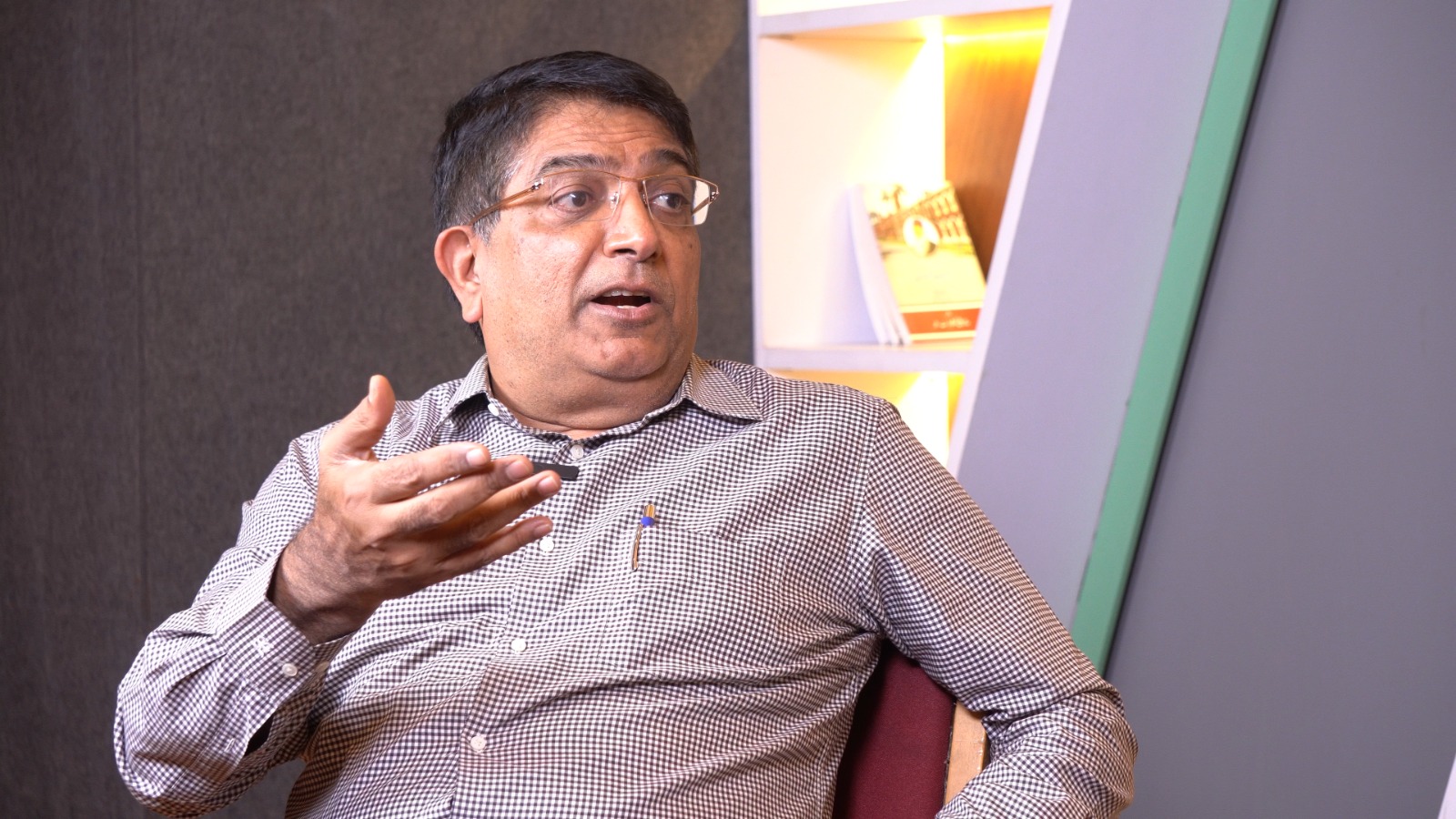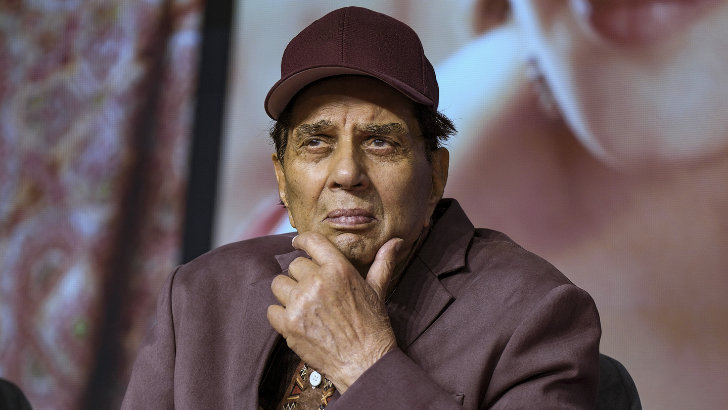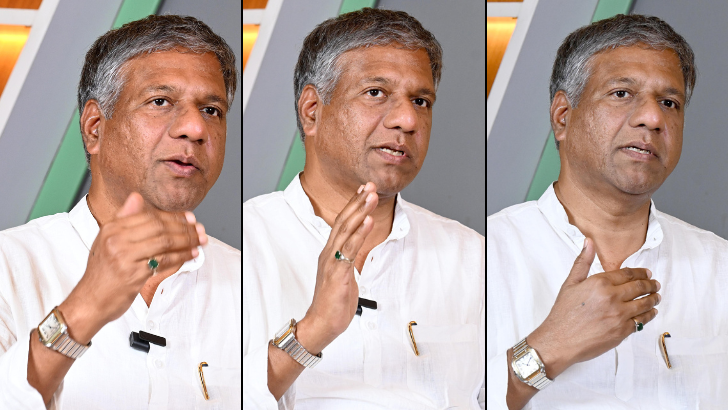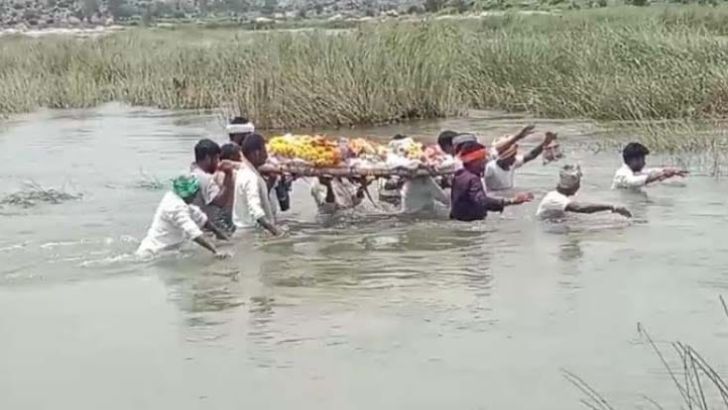Telangana's caste survey is called the model, but ours will be the best: Madhusudan Naik
Commission Chairman Madhusudan R Naik in a conversation with Salar News outlines modalities of the survey.
-
Commission Chairman Madhusudan R Naik
Naheed Ataulla
Karnataka State Commission for Backward
Classes will commence the socio-educational re-survey from 22 September to 7 October. The
Karnataka government notified a fresh socio-educational survey after
keeping aside the one done by commission's former chairman H Kantharaj in
2015 and analysed by his successor K Jayaprakash Hegde in 2024, on the
grounds that the data was a decade old and decisions by the courts require
contemporaneous/recent origin. Commission Chairman Madhusudan R Naik in a conversation
with Salar News outlines modalities of the survey.
From
the proposed 90 days, the socio-educational survey has been crunched to 15
days now. Is a fortnight adequate to survey a population
of seven crore?
That's a misconception. We were given a
window of 90 days to conduct our survey. The 90 days is when the government
makes an order. The survey which we are expected to make involves several
things other than preparations at the ground level. This
requires preparing the questionnaire and identifying who should do the
survey which takes about a month and a half. We have
decided the Dasara vacations as the time when the actual fieldwork
can be done. Factoring in that, we have started our process, which started much
earlier immediately after the cabinet decision on 12 June.
The
survey will be conducted from 22 September to 7 October, when the
educational institutions will be closed for Dasara. It is a vacation given
to celebrate Dasara which is a state festival
with people planning for short holidays. Can you ensure a 100
per cent fool proof enumeration?
The actual survey will start from
22 September to 7 October, that's when the teachers are on vacation. The
whole idea is that a survey should not affect the teaching
programme because that is the mandate by the orders of the court. It says
you should not take away teaching from the teachers for any kind
of work of enumeration even for the census. Earlier surveys
conducted were physical but that won't be anymore. We have the
benefit of advancement in technology and will be using devices which
captures the entire data and automatically transmits it to the main
server.
There's an estimated household of 1.35
lakh consisting of about seven crore population in the state. Our
task is to survey every household and every resident
of Karnataka. Hopefully, a surveyor should be able to survey about 8
to 12 households which will involve about 30 to 40 minutes, and given the time
frame we should be able to complete that survey.
We are trying to design a survey which
would be pre-notified even before the actual work starts. We will
allow online surveys as well.
People who are planning to go
out, those who are not likely to be there, to facilitate them—we have
also thought of providing an online survey option where they go to
the particular website and participate in this survey work. Even
thereafter, if somebody misses, we have provided means to contact
them. We’ll be involving clusters or welfare
associations in cities like Bengaluru where there are apartment
complexes.
Why
was there a lukewarm response from Bengaluru to both the H Kantharaj caste
survey and the recent Justice HN Nagamohan Das commission to decide on
internal reservations for the Scheduled Castes?
The Commissions did have some
problems in places like Bengaluru during the previous surveys. There was
some kind of reluctance or doubts in participating. People were under the
impression that it is not for their benefit. The impression was that if
the government is surveying for Scheduled Castes to
determine some issues between them, why should we be volunteering
and participating in this kind of a survey?
Our survey does not involve only
identifying the backward classes but covers social, educational,
economic, political and employment status of the entire residents of the
state.
Now you may ask why is this data required?
The government uses this data in formulation of its policy. Several welfare measures
are taken by the government — not necessarily confined to sections of the
society but across.
Teachers
have opposed the decision to enlist them as enumerators stating it
violates the Right To Education (RTE) Act provisions that their
services cannot be used for purposes other than teaching. How do
you plan to tackle this issue?
The Right to Education Act is for the
betterment of education to the children of a particular age group — 6 to 16
years. We will ensure that not a day or a moment of the teaching program of the
students is affected.
The teachers who have opposed
this are under the misconception that RTE is for protection of their
rights but court orders have said they are for the
students' interests. They are the employees of the state and I’m not saying in
any disrespectful manner, (but) the teachers are there to do the service
to the state and owe a duty to the society.
The commission has evolved a proposal, a
package, which is fairly attractive for them. We are not ignoring their
deprivation of their vacation. The teachers’ vacation will only get deferred.
We will convert the days for which they work into earned leave and that earned
leave can either be encashed or availed in future. The package is under
consultation before the government.
I’m sure once they realise the package
which is proposed it should clear their doubts and we should be able
to persuade the teachers to join us in this.
Chief
Minister Siddaramaiah has asked the Commission to study the socio, economic,
political, and educational survey which was done by the Telangana government,
which is now considered as the role model for all caste surveys to be done in
the future. So, what was Telangana's USP — the unique selling proposition?
Our state's Backward Classes Act provides
for assessing the social and educational status of the citizens for giving
the benefits under Articles 15 and 16 (of the Constitution). The Supreme
Court has held every factor of the backwardness -- social, educational,
and financial should be assessed.
As far as Telangana is concerned, they
did not do it under the provisions of the Backward Classes Commission Act
of their state. The survey done by the Planning Authority
of the state included aspects of employment, political representation
and requirements for good governance. Our secretary is visiting Telangana
on 28 July, to find out what else, or how best, they have done it. If there's
something to be incorporated, we will do so.
You can be rest assured, our survey will be
the model in terms of what is being referred to as the
Telangana model. Our data will be available to the government for
budgeting, for initiating numerous other issues which go into decision-making
and the furtherance of good governance.
Will
the results of the Centre's caste enumeration, that has been included
in the population census to begin in 2026, override the report
of the Karnataka Commission's?
That's a misconception actually. Under the
Census Act of 1948, there's no provision for a caste survey. The government
can amend the Act and include caste enumeration. The Central government is now
planning to invoke Articles 338, 339 and 340 (which empower the
President to appoint a Commission to investigate the social and
educational conditions of the SCs/STs and backward classes respectively) to
include caste enumeration in the population census. Therefore,
it's altogether a different work to be done by the census authorities and
the survey by the state authority.
This question arose in 1996 in Uttar
Pradesh and in Karnataka in 2015, when there were two lists of the Centre
and states. The Supreme court has given full authority to states to
prepare their lists. Hence there is no conflict and nothing overrides the
other.
What
is the status of the case pending in the Supreme Court pertaining to
the (Basavaraj) Bommai government scrapping the 4 per cent OBC reservation for
the Muslims in 2023? Has the Commission taken any steps to get the case vacated
as the Bommai government had assured the apex court
that the decision will not be implemented after the court called it “`prima
facie shaky and flawed?''
I don't have details of the
case. The matter is still pending in the court, after the Bommai
government gave an undertaking it will abide by the order of 2002. Regarding
the scrapping of the 4 per cent reservation, the Muslims were in a
particular category and they were pushed down with a limited
reservation. I'm sure the government will bring it to the Supreme Court's
notice that all this was unnecessary once fresh data is available.
Reports
of all backward classes commissions in the past, from LG Havanur to
Venkataswamy to O Chinnappa Reddy to H Kantharaj, were mired in controversies
and some rejected. Will these precedents be a deterrent or a
challenge to the Commission that yours will be accepted?
Accepting the report or otherwise
is left to the government. But since our survey work and the
recommendations based on that would be very scientifically evolved, taking note
of all the issues that had cropped in the past - court pronouncements
and the statutes in the Constitution---, our report is going to be a
fair one to be accepted by everybody. I don't see any difficulty in that.
The only issue that disturbs me is that from the beginning there was a recommendation to confine the benefits to all other than the creamy layer. Therefore, certain sections who are termed as the creamy layer in earlier reports had recommended not to accept the reports for political reasons. Our report will be data based and I`m sure the government will take it in the right manner. Confident it will happen.
Watch the interview on Salar Youtube channel @dailysalardigital
Link: https://youtu.be/nz7zw7HEk2E?si=6JHsmd8p0-f7hvUN
Leave a Reply
Your email address will not be published. Required fields are marked *









.jpg)




.png)
.png)
.png)
.png)

.jpg)

